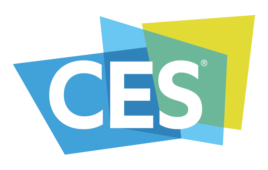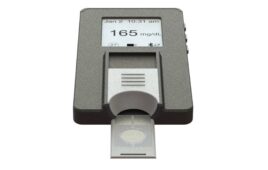Beta Bionics: A little fish looking to make big waves
One of the newest players to the race, startup Beta Bionics, is leveraging technology licensed from Boston University to develop the iLet bionic pancreas. Beta Bionics is actually a Massachusetts public benefit corporation; Boston University biomedical engineering professor Ed Damiano initially designed the iLet so that his son could have a bionic pancreas to take with him to college.
The bionic pancreas is wirelessly connected to its 2 pumps using a smartphone, which receives a reading every 5 minutes from a continuous glucose monitor. The algorithms controlling the system calculate a dose of either insulin or glucagon depending on the patient’s blood glucose level.
The device will also deliver anticipatory insulin doses if patients enter information about an upcoming meal. The system is designed to control blood sugar using insulin and a hormone that increases glucose levels, called glucagon.
The technology behind Beta Bionic’s artificial pancreas was able to outperform conventional insulin pump therapy, according to a study from the Massachusetts General Hospital which was published in The Lancet late last year.
The study included 39 adults with type 1 diabetes who had used an insulin pump to manage their diabetes for at least 6 months prior to the start of the trial. All participants used the bionic pancreas for 11 days and their usual insulin pump for the other 11-day study period.
When participants were using the bionic pancreas, their average blood glucose levels were 141 mg/dl compared to 162 mg/dl while undergoing standard treatment. Patients also experienced less hypoglycemia while sleeping using the bionic pancreas compared to their standard regimen.






I’m patiently waiting for this to hit the marke; T1 for 58 years!
Thank you!
Thanks for the comment, Gayle. Hope you don’t have to wait much longer!
but what about the advancements in this? worth looking at, it is being investigated by the same people that are investing in this product. hope for us T1 diabetics is coming, one way or another. there is hope.
http://thejdca.org/practical-cure-project-update-bcg
Hats off to you, Gayle.
Waiting impatiently.
Mum of a 10-year-old T1
How do i get to be in the trial?
This will be great. I am 67 years old and am fighting the battle of diabetes. I would love to trial test something like this. I worked in the Medical field for 39 years and was always studying how to beat this terrible disease.
Ronnie McBride
I wish all success. I hope for biological approach to protect islet insulin producing cells for implant or infusion of cells to restore natural function of glucose metabolism. May God help us.
T1D for 70 years. Why not a cure instead of costing us more and more to live. We are the support of these drug and device companies. Thank you for this article. I do a diabetic newsletter for a T1D optimist club. Our next speaker is building his own device.
Thanks for the insights, Pat. I think it really says something about the motivation of the diabetes community that there’s so much do-it-yourself activity going on with devices, including when it comes to an artificial pancreas. Who do you have speaking?
You forgetting a big player in the Netherlands.
https://inredadiabetic.nl
Thanks for pointing out, Frank!